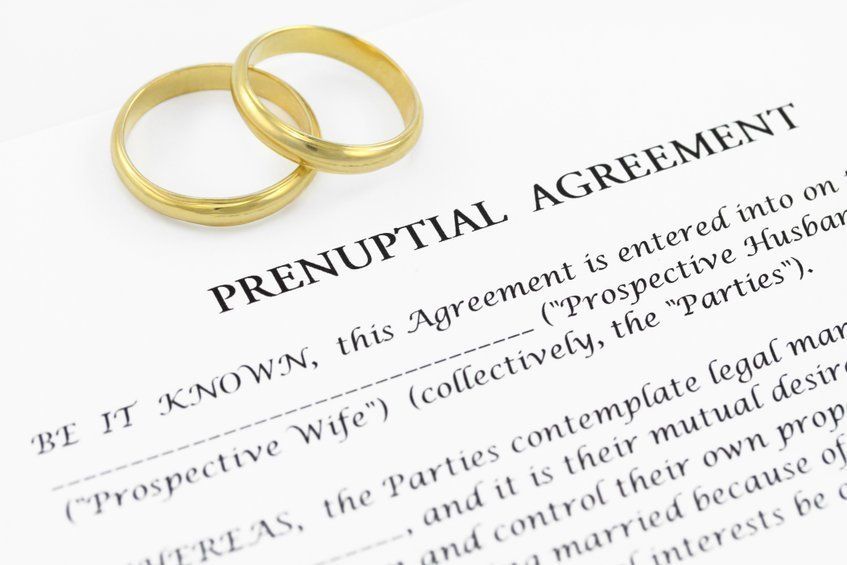How North Carolina Prenups Work
While prenups might seem like something you only hear about in movies or on TV, they’re very common. It doesn’t matter what age you are or what income bracket you’re in, prenuptial agreements provide a legitimate, legal means of protecting the rights of both parties involved.
If you need help drafting a prenuptial agreement, or if you and your spouse are beginning the process of divorce, the family law and divorce lawyers at Mulligan Attorneys may be able to help. We will always do our best to help you through this difficult time while taking every precaution we can to protect the best interest of you and your family.
What is a Prenup?
Also called a prenuptial or premarital agreement, a prenup is a contract between two individuals who intend to get married. A prenup can list the rights and responsibilities of either partner inside the context of a marriage, as well as outline the distribution of assets in the event of a divorce.
Who Should Get a Prenup?
Prenups aren’t for everyone, nor are they required for a happy, healthy marriage. They are simply a means of determining how certain financial situations should be handled throughout marriage and/or divorce.
You might be a good candidate for a prenuptial agreement if you have a financial situation that you wish to protect or keep separate from your spouse. For example, if you own your own business, a prenup can ensure your business or earnings will not be contested in the event of a divorce.
A prenup can also protect property ownership to ensure that property owned prior to marriage remains separate property throughout the marriage and is not converted to marital property. A prenup is a way to protect these types of assets from the possibility of division in the event the parties divorce.
What Do Prenups Cover?
Prenups are designed to outline the rights and responsibilities of both spouses during a marriage and after divorce. Prenups may include things like:
- Distribution of asset after divorce
- Protecting the inheritance of child from previous marriages
- Outlining each spouse’s right to various types of property, as well as the management of that property (buying, selling, mortgaging, etc.)
- Outlining how various types of property will be distributed in the event of separation, divorce, or death
- Defining the conditions and situations during which spousal support will be awarded
- Providing rights to death benefits from either spouse’s life insurance policies
Prenups should also take the couple’s will into consideration and vice versa.
What Don’t Prenups Cover
There are some limitations regarding what cannot be in a prenup, and they include:
- Child custody
- Child visitation
- Child support
How Do I Know My Prenup Will Be Enforced?
The best way to ensure that your prenuptial agreement is enforced is to have it drawn up by an attorney who is knowledgeable in the North Carolina statutes and laws surrounding these contracts.
Prenups take effect at the time a couple is married and are generally enforced after divorce unless either party can prove that:
- They didn’t sign the prenup voluntarily (i.e. they were forced into signing)
- The agreement was unfair when it was signed because:
- One spouse didn’t fully disclose their financial situation
- The defrauded spouse didn’t waive their right to see the other spouse’s financial information
- The defrauded spouse could not possibly have had sufficient knowledge of the other spouse’s financial situation
Protecting Yourself with a Prenup
Prenuptial agreements can be difficult for the average person to understand. That’s why it’s always best to have an experienced family lawyer look over it before you sign and agree to something that could affect your future rights. If you need help with a prenup or divorce proceedings, contact Mulligan Attorneys at 910-763-1100.
*Our clients should message us through their secure client portal for faster communication. Access your client portal using the Client Portal Login button above. You must set up your access using the invitation email you received from our office. If you need another copy of the client portal setup email, please send the request to info@mulliganattorneys.com.
Mulligan Attorneys, PLLC




